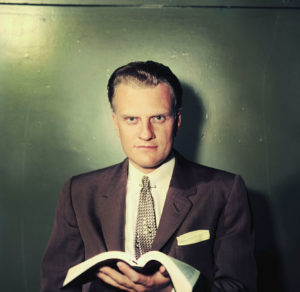“The anti-American obsession: it’s all in me, I confess. America is terrifying. Its internal unbalances appear extreme (economic, cultural, racial), an unimaginable fragility. It concerns us closely as a mirror of the future — our future, if we still have one.”
Thus ran the closing paragraph of a letter the Belgian Sinologist Pierre Ryckmans — known under the pen name “Simon Leys” — wrote to his French friend Pierre Boncenne in 2008. As Leys admitted, French interest in the United States had an old lineage. Since the 1770s, thinkers such Alexis de Tocqueville, Joseph de Maistre, and Hector de Crèvecoeur had both been repulsed and attracted by the exploits of the post-revolutionary US. “America is often cited to us,” de Maistre exclaimed in the 1790s, but “I know nothing so provoking as the praise showered on this babe-in-arms. Let it grow”.
De Maistre’s coordinates began to shift towards the close of the 20th century. In the Eighties, French sub-intellectuals such as Bernard-Henri Lévy followed Tocqueville with immemorable memoirs such as American Vertigo. As an anti-Gaullist, Lévy clearly took a much softer stance on American civilisation than many of his countrymen. In the Forties, French novelist George Bernanos still saw the utopia imagined by Americans as “little more than some little Yankee boot-black eating his sugared peanuts — a half-Saxon, half-Jew, rat-faced prairie-dog with who-knows-what negro ancestor at the core of his itching marrow”. The only hero the Americans were capable of producing was the “future king of Steel, Rubber, Oil, the Truster of Trusts, the future master of a standardised planet, that god which the universe is awaiting, the god of the Godless universe”. Here was the American dream — a crazed nightmare from which France should wake up as soon as possible.
Today, this rabid anti-Americanism has given way to a more complex pattern of exchange. On top of its dollar stream and Hollywood movies, the US has been busily exporting its culture wars, from gender to racial justice to abortion debates. As Daniel Zamora has noted, these have redrawn cleavages along the way. The result has been a silent Americanisation on both sides of the political spectrum: Le Pen followers import Republican culture language about the dangers of “wokeness”, while Macron followers take their cues from Clintonism. After the Second World War, European reactionaries such as Bernanos worried that everyone would become American in a “positive” sense. Today, Americanisation continues through anti-Americanism: a “negative Americanisation”, where even the most rabid anti-Americans are as American as can be.
Jean Baudrillard’s America (1986) — a travelogue the philosopher compiled after a series of stays in the country in the late Seventies and early Eighties, spanning the end of the Carter presidency and the start of the Reagan years — does not stray in either direction. Instead of adulation, Baudrillard took a more forensic approach. He wanted to understand the US on its own terms. French resistance to Americanisation was not only futile, in his view, but also actively harmful. It delayed a reckoning with a distant mirror: like Tocqueville, one had to treat America as a sign of things to come, evincing a high tolerance of ambiguity without ever falling into declinism. Rather than allergically rejecting the US, Baudrillard asked: what is America the name of? What made this necessary?
Baudrillard drew on a much older tradition of French moralism with this approach. Since Montaigne, French philosophers have used the New World to relativise the prejudices of their own societies, but also to assert superiority. Patrician to the core, this latter attitude approached the US much like the Comte de Bouffon approached 18th-century America — a continent in which a humid climate induced permanent nervosity, an argument about New World degeneracy which motivated Thomas Jefferson to write his Notes on the State of Virginia (1785). France and America might have been twins, but they were not of the same age.
Baudrillard’s background on the Left played its own role in this transmission. His time at Guy Debord’s French Situationist International — the New Left formation which contested both official communism and the state elite in the Sixties — informed his critiques of consumer culture. Debord was no populist: rather than a high tide of worker power, he saw les trente glorieuses as a period of total capitalist triumph, in which commerce had extinguished the Frankish warrior spirit. Baudrillard followed these cues in America. Like Tocqueville and Debord, he came to the US as an aristocrat in a peasants’ clothing, looking both down and up. The chaotic clash between ancien régime and modernity birthed a culture shock; on this tension Baudrillard drew, peering at the new world with a vantage point from within the old.
Baudrillard never became American. He remained an eternal stranger. But this sovereign indifference granted him a distance necessary for social analysis. Add to this a tremendously French sense of style — his diaristic entries are written with a verve and rhythmicity unequalled in contemporary social science — and we are apt to understand the continuing appeal of his works in the 2020s. Purely on form, Baudrillard has held up.
Baudrillard’s oeuvre is sizeable. The Cool Memories series (1987-2004) remains as timely as ever, and his comments on the Gulf War prefigure today’s discussion on the digital “hyper-real”. The Divine Left (1985) predicted the French Left’s disarray before Hollande. So why read America, particularly in 2022? Why go for a testimony of the age of Reagan in the age of Biden, when the Eighties are confusingly far away? Are we not witnessing an empire in decline, a dying supernova which sends its light across the universe before it implodes? Read in this way, it makes little sense to grant Baudrillard’s America a prime place.
Yet things are not that simple. The Reaganite boom and supply-side economics are no longer with us. The current head of the Federal Reserve is hardly Paul Volcker. The unipolar Nineties which Baudrillard registered are far away. But America is hardly gone. Rather than fade from view, the United States have weathered the new century with a ruthless tenacity and gusto. As Adam Tooze has argued, the US has clung on to external power while continuing to manage internal decline — a tree growing despite fungi hollowing out its trunk.
Nothing exemplifies this better than the current Russian invasion. The result of Putin’s war has been a full-blown “return of the king”, as Wolfgang Streeck has noted, with European industry and security policy subordinate to American geopolitical imperatives. To some Europeanists, it feels as if the EU is effectively run from Langley, Virginia. Energy costs are destabilising the German export model. Dollar supremacy is stronger than ever. The biggest army in human history is now trying to reshore its industry. Liquid gas supplies find their way to Stuttgart. The result is a dazzling compound: late imperial Rome with a stock exchange and nuclear weapons, and the same spectacle of public acclamations that accompanied the crepuscules of the pagan world.
The result also is a vertiginously unbalanced form of hegemony. In 2016, theorists proclaimed the “end of the American century”. Today, the Trumpite interlude has revealed itself as exactly that — an interlude — and Biden continued to decouple supply chains. Ironically, the anti-Trump has doubled down on Trumpism without Trump. The politics of other developed nations are also Americanising, with Germany now holding regular BLM rallies and trans controversies a recurrent feature of many European public debates. The hollow universality of American culture induces both despair and comfort: in its vulgarity, the greatest promises of capitalism express themselves, from diversity to social mobility, while its sorrows, from extreme poverty to the marketisation of the self, stand out as ominous warnings.
All this grants Baudrillard’s book a refreshing contemporaneity. From Silicon Valley to evangelicalism to Trump to polyamory to the military-industrial complex: each receives due mention in America, placed in a stream of consciousness that makes up the book’s main body:
“Take this white Christ carrying a heavy cross down Main Street, Venice. It is a very hot day. You want to tell him it has already been done, 2,000 years ago. But he is not trying to do anything new. He is just carrying his cross the same way as other people carry ‘Jesus Saves’ or ‘Know Jesus’ badges on their cars. You could point out that no one — not a single person — is watching, and that he is accorded only indifference and derision as he passes. But he would tell you that was exactly how it was 2,000 years ago.”
Compare these to a description of a flight into Los Angeles, a “luminous, geometric, incandescent immensity, stretching as far as the eye can see, bursting out from the cracks in the clouds. Only Hieronymus Bosch’s hell can match this inferno effect.” “Once you are beyond the mountain”, however,
“a city ten times larger hits you. You will never have encountered anything that stretches as far as this… The irregular, scattered flickering of European cities does not produce the same parallel lines, the same vanishing points, the same aerial perspectives either. They are medieval cities. This one condenses by night the entire future geometry of the networks of human relations, gleaming in their abstraction, luminous in their extension, astral in their reproduction to infinity.”
Such paragraphs are interspersed with a cooler assessment of the United States as the first nation to arrive in post-history. Here is “the post-orgy world”, “the electronic tribalism of Silicon Valley”, with its “reduced pace of work, decentralisation, air-conditioning, soft technologies”. “Culture itself is a desert there,” he notes about California, “and culture has to be a desert so that everything can be equal and shine out in the same supernatural form.” This might be “paradise”, Baudrillard concluded, “but a very slight modification, a change of just a few degrees, would suffice to make it seem like hell”. Do we possess a more vivid depiction of the US in 2022?
Anti-Americanism might be a moral imperative for Europeans. It certainly is satisfying. But a disinterest in the US is hard to justify politically, let alone strategically expedient. As Nick Burns noted in a reflection on America, Baudrillard’s real message is that “we have to perform American experiments on ourselves”. Baudrillard’s book is Democracy in America for the coming century. For better and for worse, America’s politics are our politics, and the only way out is always through, as Baudrillard already concluded in 1982.
Disclaimer
Some of the posts we share are controversial and we do not necessarily agree with them in the whole extend. Sometimes we agree with the content or part of it but we do not agree with the narration or language. Nevertheless we find them somehow interesting, valuable and/or informative or we share them, because we strongly believe in freedom of speech, free press and journalism. We strongly encourage you to have a critical approach to all the content, do your own research and analysis to build your own opinion.
We would be glad to have your feedback.
Source: UnHerd Read the original article here: https://unherd.com/



